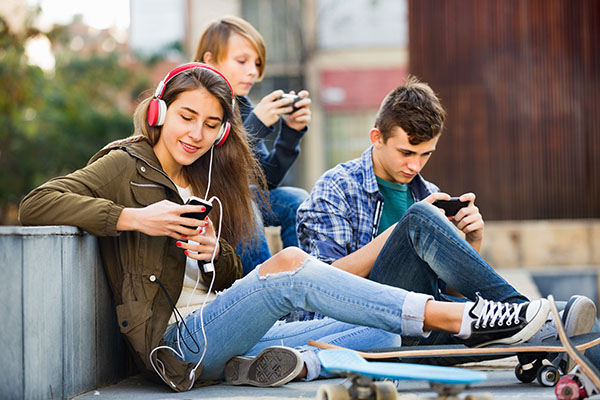Tell me what you post, and I’ll tell you who you are: here’s how we all became obsessed with our virtual identity
One in two people in the world
is present on at least one social platform. To be precise there are 3.4 billion active users on social networks of the 7.6
billion people that live on our planet. This is truly an incredible number.
It suffices to say that, in a single year, from January 2018 to January
2019, there has been an increase of 288 million new subscribers on social media,
with a jump of +9% compared to last year. This is the data from the latest
research, just published, by
We are social
, an annual study on the penetration of the Internet and digital media in
the world.
We are increasingly digital. We are more and more social, and the
boundary between our off-line identity and the on-line identity becomes
increasingly blurred and nuanced.
From a real identity to a virtual identity
Let’s face it
: the time we spend immersed in our “world of screens” increases every
day
. On social media only, according to the We are social 2019 study , we spend an average of 2 hours and 16 minutes every day.
Just 5 years ago, in 2014, it was an hour less.
Overall we are on the internet, whether for leisure or for
work, 6 hours and 42 minutes per day. Over a quarter of
our day! Our Internet presence is becoming obsessive, almost compulsive.
The web has become the main
channel through which we build and show the image of ourselves and
where we relate to others.
If we think about it, our business card is now our account on Facebook,
Instagram, or Linkedin. Our tweets or posts have become the main way we
communicate, express our feelings, our ideas and thoughts, our moods.
Through the captions or comments, images, and videos that we post every
day, we build, consciously or not, our “digital identity.”
For this reason, it has become essential to be aware of the story that we tell every day on the web, and
realize how each single detail contributes to that story and to the
definition of our social self and our reputation.
On social networks, is anybody “real”?
At this point the question arises: do the
collections of our statuses, the photo and video albums we publish, the
posts, the shares and the likes, really represent us
? Certainly they are all elements that contribute to defining and
expressing our own identity. But perhaps it is an identity that does not
represent us one hundred percent. In real life –or, better said, not
immaterialized- with colleagues or with our relatives, we are different,
whether for worse or for better, but different.
What then is the great difference between one’s physical and digital
identity?
On social networks, in the end, no one is really himself, because all the
elements that contribute to defining our “virtual being” can be manipulated at from a desk and keyboard.
If we think about it, never before as in this historical timeframe, have we
had the opportunity to manage data and information about ourselves. Every picture
and post that we insert on social networks is the result of our
decision-making and “manipulation.” I decide what to write, what to omit,
what pictures to post and what not, what side of my character to show, what
fragments of daily life make public and what to keep instead for me. I can
alter the photos, retouching them, to make myself look more beautiful,
younger, happier, more everything! But perhaps deep down, is this all just
a big deception?
On social networks we have the
illusion of having finally taken control of our lives, of being able to
manage it as we see fit
, of having finally become owners, without leaving any more judgment of
ourselves at the mercy of others. But, all this obsession with our image on cyberspace,
built selfie after selfie, post on post, does not lead to anything
good.
The path that leads to the definition of our digital identity is likely to become a cage, a prison
from which it becomes ever difficult to leave. What does one do then? In
front of us, we have two ways of confronting the issue.
The first, is to
certainly pay attention to our virtual identity, but not excessively
, just enough to be careful of what we post and write on the Net. A piece
of advice: always try to ask yourself: “these things I’m writing online,
can they somehow embarrass my friends or family? This photo that I’m
publishing, can it compromise my reputation or even give me legal problems?
The second one is even simpler.
It consists of using social networks less, making them less central in
our lives. We do not exist only as a function of the likes we receive.
The concept of identity and definition of one’s self is very complex, and
that of digital identity is certainly not any less complex. Social media
has deluded us into thinking that we’ve found a simpler way to show others
who we are, but maybe it’s not really this way. Digital identity risks becoming an obsession that prevents
us from evolving, from experimenting, from being sincerely open to the
encounter with others, showing our weaknesses, defects, and fragility.
Because it is also beautiful and human to sometimes show the pitfalls
and that we know how to get up again. From this awareness we must start
again.















